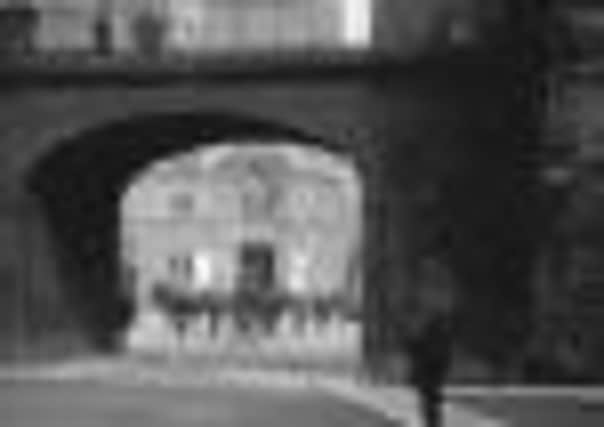Charitable hospital help and the introduction of electric lights


One such institution in Londonderry in the late 1800’s was the Foyle Hill Hospital which was a institution for the treatment of fever and the council records for 1897 states: “Since the last meeting there were under treatment in the hospital 18 cases of which 13 have been discharged and five now remaining: The amount paid in for food of patients was: £34.2.3: Amount repaid by patients: £12.16.0: Nurses and servants salaries: £37.12.1.”
Members of the hospital committee at the time were Alderman O’Kane and Councillors MacCullagh, McCaul, McLaughlin, Magee, Tillie and Hannigan. These were the men who handled the tenders for various services to be supplied to the hospital. They appointed Mr David Best to supply groceries, Messrs A Russell & Co for oatmeal and Mr John Concannon for beef and mutton.
Advertisement
Hide AdAdvertisement
Hide AdA strange entry, hinting at some form of intrigue at the Foyle Hill Hospital was also made in 1897.
It states: “Letters were read from Dr Todd and Mr Herbert Williams complaining of the treatment at the hospital and Miss Ferguson’s reply thereto and it was decided that the Executive Sanitary Officer write a reply to Dr Todd that it appeared in the absence of Miss Ferguson on 21st December was with the consent and permission of the Medical Attendant in charge at that time, but under new rules now in operation officers leaving duty must have the permission of the Committee and as regards the noises complained of on the night of 10th December it appeared this was occasioned by the lock of the nurses’ bedroom door being out of order which necessitated the door being forcibly opened.”
But, whatever went on there at the time, things moved on swiftly as the next entry says the Hospital Committee were directed to report on the provision of a “new ambulance van with pneumatic wheels for conveying patients to the hospital.”
Moving on from the hospital another brief entry reveals the very different world of 115 years ago-the entry simply states: “An order was issued to have notices served on all persons having manure on the plot at the foot of Bishop Street to have the same removed within fourteen days.”
Advertisement
Hide AdAdvertisement
Hide AdCommerce within the city also brought extra considerations for those concerned with public health and safety especially as the town continued to expand.
The Londonderry Corporation minutes reveal that there was a Water and Fire Brigade Committee and for the year of 1897, Councillor Ross Hastings JP was its chairman.
The committee approved of the extensions of water mainss in Elmwood Street, Marlborough Street and a ‘new street’ not as yet named off the Brandywell Road and the Committee approved of the ordering of 150 yards of three inch water pipes to complete the jobs. The Committee also recommended that a pipe be taken off the Strand Road to the foot of Boating Club Lane and that a hydrant be put on with the cost not exceeding £15.0.0.”
The Town Clerk also reported that he had received a letter from the Secretary of the Bridge Commissioners stating that they had no objections to the placement of a fire alarm box at the end of the bridge.
Advertisement
Hide AdAdvertisement
Hide Ad